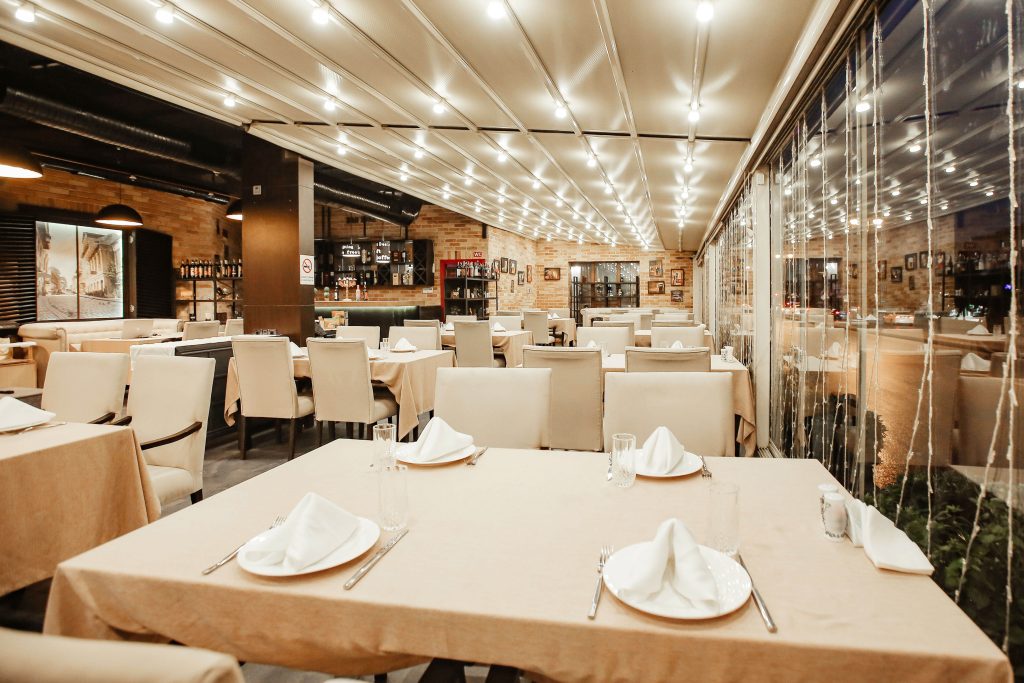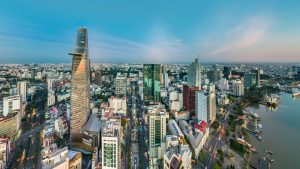Foreigners can easily start a business in Vietnam’s food and beverage industry. This means that anyone from abroad can open a restaurant, bar, or café just like a local entrepreneur. With a growing market for dining and social experiences, Vietnam offers great opportunities in this sector for international investors and business owners. Whether you’re looking to launch a trendy café or a lively bar, the Vietnamese market welcomes foreign investment in the food and beverage scene.

How to open a restaurant in Vietnam?
Opening a restaurant involves registering a company under the food and beverage (F&B) sector. Both new and existing businesses can undertake this crucial first step.
In Vietnam, a single company can operate multiple business lines, allowing investors to consolidate various ventures into one corporation. Rather than establishing separate entities for each business, merging them can significantly reduce operational costs. By streamlining your restaurant’s setup, you can focus on growth and success in the competitive food industry.
Conditions to open a restaurant in Vietnam
If you’re considering opening a restaurant in Vietnam, it’s essential to research the food and beverage (F&B) industry to understand the requirements and challenges. The restaurant registration process in Vietnam can be simplified into three key steps:
- Choose the right location for your restaurant.
- Obtain the F&B business line on your company license.
- Secure the necessary licenses to prepare your restaurant for operations.
Steps one and two are closely linked; to add the F&B business line to your company license, you must provide proof that you have secured a restaurant location. Authorities will dispatch inspectors to evaluate the site, ensuring that it meets all location requirements for a successful restaurant launch. By following these steps and understanding the local landscape, you can set your restaurant up for success in Vietnam’s vibrant dining scene.
Select a location for a restaurant in Vietnam
When selecting a restaurant location, it’s crucial to adhere to regulatory requirements. Here are the key conditions to consider:
Safety Regulations: The restaurant must not pose any security threats, meaning it should be located away from military zones or areas with national security forces.
Alcohol Sales Restrictions: If the restaurant plans to serve alcohol, it must be situated at least 100 meters from schools, hospitals, kindergartens, and similar institutions, in accordance with Vietnam’s alcohol control laws.
To streamline the process, it’s advisable for investors to sign an initial memorandum of understanding (MOU) with the landlord. This agreement can include a small deposit to hold the location for further inspections. However, refrain from signing a lease or paying rent until the business license has been successfully obtained.
By following these guidelines, you can ensure a compliant and successful restaurant venture in Vietnam.
Obtain F&B business line
Once the location inspection is successfully completed, the company will receive its business line designation. This crucial information will then be printed on the company’s Investment Certificate, ensuring clear documentation of its business activities.
Get licenses for the restaurant to make it ready for operations.
If the location inspection receives approval, the company will secure the Food and Beverage (F&B) business line. Once this crucial step is completed, the investor can start acquiring additional licenses needed to fully operationalize the restaurant. Here are the essential operational licenses required for running a successful restaurant:
- Certificate of Food Safety Condition (COFSC)
- Fire Protection System Registration (if any)
- Alcohol License (if any)
- Environmental Protection Plan Registration
What are the costs to open a restaurant in Vietnam?
The capital to start a business in Vietnam
Opening a restaurant in Vietnam requires a capital investment similar to that needed for starting a consulting, IT, or trading company. Unlike other businesses, the law does not define a minimum capital requirement for restaurants; instead, it depends on the investor’s assessment and budgeting strategy.
It’s important to note that any capital details listed on the business license must be updated through a license amendment before implementation. This amendment process can take 30 to 45 days to complete. Considering these factors can help ensure a smoother launch for your restaurant in Vietnam.
Design and Decoration cost
Visual effects play a crucial role in the success of restaurants in Vietnam. Guests come not just for delicious food and drinks but also for a captivating atmosphere and overall experience. To create an inviting space that wins customers’ hearts at first sight, consider hiring a skilled interior designer and a reputable design agency.
When planning your interior decor, budget around $250-$350 per square meter for a turn-key project. Keep in mind that costs can vary based on negotiation and the choice of decoration materials, which can influence the overall price. Elevate your restaurant’s appeal and enhance customer satisfaction by investing in quality visual design!
Employment cost
A restaurant represents a vital segment of the hospitality industry, with its workforce being crucial to its overall success. Understanding employment in Vietnam can be daunting due to the abundance of regulations and labor laws, making effective hiring practices essential for restaurant operations.
When planning an employment budget for your restaurant, it’s important to focus on gross salaries in Vietnam rather than net pay. Employers are responsible for covering most of the costs associated with four types of state insurance, which typically amounts to about 23% – 23.5% of the total gross payroll (capped at $321 per person per month).
Salary ranges for restaurant positions can vary significantly. Part-time waiters can expect to earn between $150 and $300 per month, while full-time waiters can make between $400 and $600 per month. Leadership roles, such as team leaders or supervisors, often earn about 20% more, plus the potential for bonuses or shared tips. However, since Vietnam lacks a strong tipping culture, tips should not be relied upon as the main source of income for restaurant employees.
For those seeking employment in the restaurant sector, a fixed gross salary remains the most significant consideration. If you’re looking to hire skilled employees, consider partnering with Iris International to simplify your recruitment process. Start building a successful team today!
Equipment cost
The cost of restaurant equipment and facilities can vary greatly based on factors like type, origin, capacity, and brand. To save money, consider exploring domestic brands and traditional materials, which offer affordable cooking utensils and tableware. You can easily find budget-friendly options at markets or wholesale centers just a few clicks away.
Starting a successful restaurant in Vietnam requires careful planning and dedication. At Iris International, we provide aspiring entrepreneurs and business owners with valuable insights and guidance on navigating the restaurant industry in Vietnam. If you’re looking to open a restaurant in Vietnam, reach out to our consultants today to schedule a free consultation and kickstart your journey to success!







